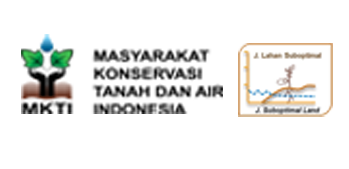Aplikasi Teknologi Bioslurry di Desa Montongsari Kabupaten Kendal Provinsi Jawa Tengah
DOI:
https://doi.org/10.33230/JLSO.6.2.2017.315Keywords:
liquid bioslurry, organic fertilizer, solid bioslurry, water spinachAbstract
Kusmiyati et al, 2017. Application of Bioslurry Technology at Montongsari Village, Kendal Regency Central Java Province. JLSO 6(2):106-112.
The dependence of farmers on inorganic fertilizers is increasing from year to year. The urea requirement for agriculture in 2015 was 3.795.596 tons, increased to 4.007.463 tons in 2016. Many efforts have been made to reduce farmer’s dependence on inorganic fertilizers. The activity purpose of Student Community Service-Community Empowerment Learning was to reduce farmer’s dependence on inorganic fertilizers by using bioslurry at Montongsari village, Kendal regency, Central Java. The activities were training, mentoring and demonstration plot. Training and mentoring activities were processing of biogas wastes into solid and liquid bioslury fertilizers and their application on plant. The treatments of demonstration plot were without and with liquid bioslurry on growth and production of water spinach (Ipomoea aquatica). The result of the mentoring activities showed a biogas reactor (capacity of 4 m3) will produce 18 kg of bioslury from 20-40 kg of goat dung. Nitrogen content (N), C-organic  and C / N ratio of solid bioslury were 1.43%; 37.61% and 26.30, respectively. While nitrogen content of liquid bioslury was only 0.09%. There were no growth difference between aplication of liquid bioslurry and inorganic fertilizer on water spinach. The conclusion was  bioslury of biogas waste both solid and liquid bioslury can be utilized as organic fertilizer for plants.
Downloads
Published
How to Cite
Issue
Section
License
Copyright (c) 2018 Florentina Kusmiyati, Bagus Herwibawa, Susilo Budiyanto

This work is licensed under a Creative Commons Attribution-NonCommercial-ShareAlike 4.0 International License.













